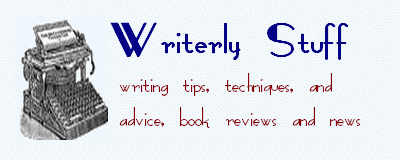Consider this the antithesis of the Nike sneakers slogan.
I just went to one of Dee Power's Squidoo lenses (I subscribe to her newsletter, BTW, which is quite good - and free). It's for her latest non-fiction book, How to Get a Book Published. One of the comments to this particular lens was that the commenter couldn't "afford" an agent.
Oh, my.
Fortunately, Ms. Power set this commenter right: Don't ever, ever pay to have someone represent you and your book(s). Look at it this way - if an agent charges you, say, US$100 up front, what incentive do they have to place your book(s) with a legitimate big or small publisher? Hmm?
What's that, you say? They have expenses to pay, like postage, copying, yadda, yadda, yadda.
Agents absorb such things; and if there's excessive copying, let's say, they'll take that out of their 15% commission. Don't ever pay anything up front. If they're asking, you know that means to cross that particular agent off your list.
Is it a perfect system? Of course not. But it's what's out there right now, so we all have to learn to deal with it as best we can.
So how to do that?
Research the agents out there. Check print resources and Internet resources; don't be satisfied with just one or the other. There's a lot of misinformation floating around, so make sure you double and triple check what you've come up with.
Make sure your book fits what the agent represents. Nothing is worse than just emailing queries to any ol' agent about your SF book when she represents women's fiction. Don't think that if you send out enough that something is bound to stick. Be professional about it and make sure your book is in line with what the agent is looking for.
Work from the top down. Okay, so it's not how to build a pyramid (unless you're magically inclined ;-)), but start with the top tier agents. Treat yourself and your ms. with respect. Don't go trawling through the bottom trawlers, figuring you're not worthy of a spectacular agent because it's your first book. Screw that. Just remember that today's bestselling authors were once first timers, too. Everyone has to start somewhere; why should you start anywhere but at the top of the heap.
Query first, and query often. All right, you've got your list of agents, and after doing some more research to see the ones that fit your book's genre, you've whittled down that list a bit more. You've decided that 10 are in the top tier, those that you'd love to be represented by, but you've got more waiting in the wings.
Good. First rule of thumb: Don't send out your complete ms. at first. Why? Agents are inundated with papers and emails and just don't have the time to go through big, gommy mss. They want to see a bit of your writing to see if they're interested. The query letter will be the first thing they see (although you can attach the first two or three pages to the query, if you'd like). This is your sales letter, where you sell your book.
If the agent likes what he sees, he'll probably ask for a partial. This is anywhere from the first 10 to 30 pages of your book. If he further likes what he sees, then he'll for the full. This is where snail mail comes into play.
That's the happy scenario. The unhappy (but one you're going to have to deal with, repeatedly) scenario is that the first agent you send your query to rejects it. She's not rejecting you personally: Remember that. It still hurts, but try to get over it as quickly as you can.
To that end, you need to sent out more than one query. Five or 10 in a batch seems to work for a lot of people. In that way, you're not waiting until you're 110 years old before someone gets back to you. Agents expect that you'll be doing this, so don't be afraid to send out two or three a week (at least!).
Running out of agents? If you've been rejected time after time after time without a request for a partial, it might be time to tweak your query letter. Or you may decide, after doing some digging around and asking questions, that your book is so quirky and offbeat that agents might not want to touch it. If so, you might want to go and seek out legitimate publishers (try the Absolute Write Water Cooler under the Bewares and Background Check forum) where you don't need an agent. Again, do your research ahead of time so you won't be taken in by charlatans like Publish America and the like.
Whatever you decide to do, don't give up hope, don't stop writing. Keep at it. There are many, many stories out there of people who didn't sell their first several novels. Work your craft, get your chapters critiqued by a good online crit board. Persistence will pay off.
~Nancy
Opting Out of the Bartz v Anthropic
1 week ago


0 comments:
Post a Comment